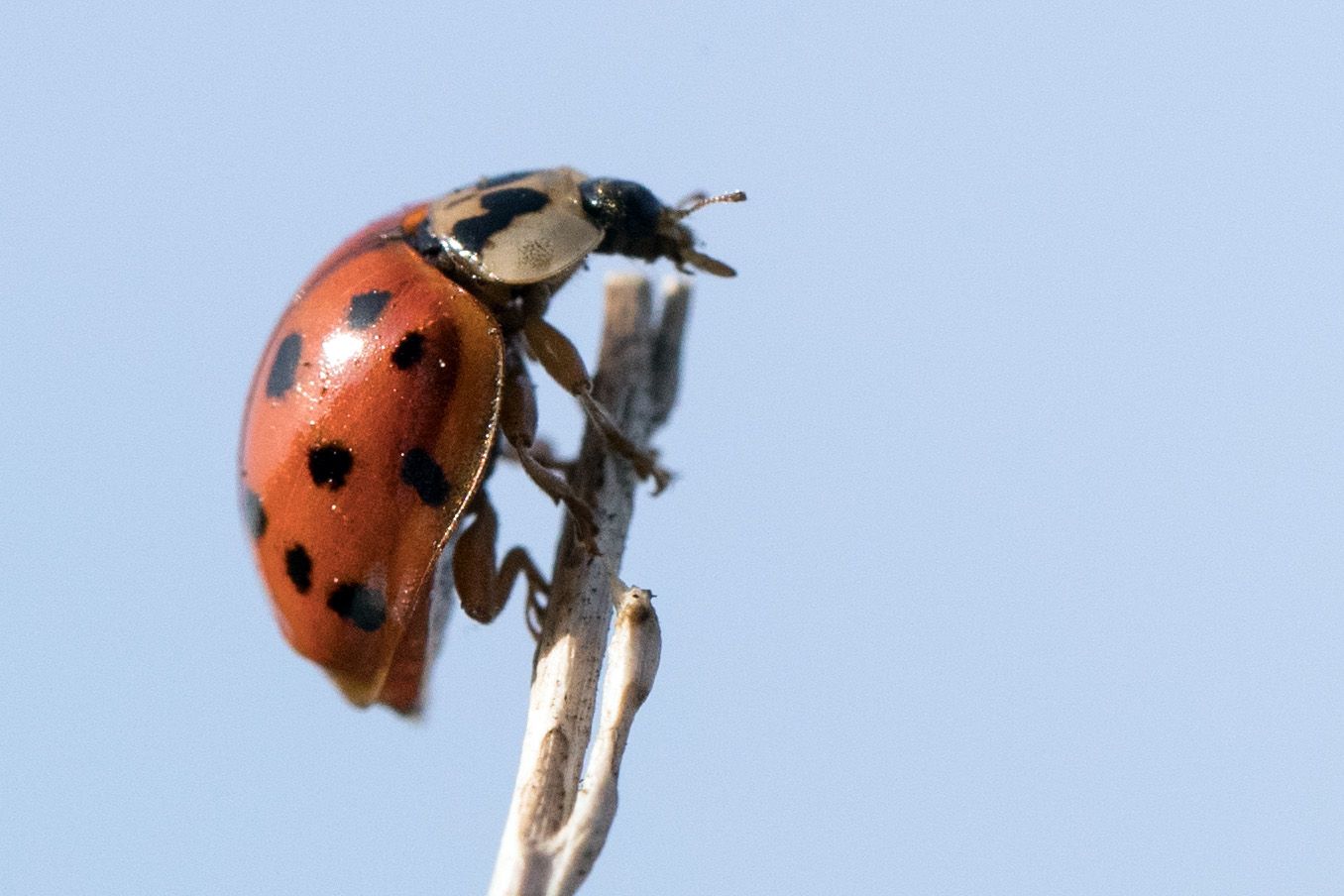
Almost 40 years have passed since AC/DC declared "rock 'n' roll ain't noise pollution," but a biological researcher and lifelong fan of the band discovered the headbanging music does actually disrupt the environment.
Man-made noise affects how animals behave and interact with their ecosystem, according to a paper published Tuesday in the journal Evolution and Ecology. Testing what they called the "AC/DC hypothesis," wildlife experts found that music from AC/DC, Guns N' Roses and Lynyrd Skynyrd affected how insects attacked pests and hurt subsequent plant growth, while other music genres had no effect, even when played at the same volume.
To test their theory, the team recruited a host of ladybugs and examined how the music affected their consumption of aphids, a pest that infests soybean plants. In addition to rock, country and folk, the research team lined up sounds typical of urban environments, like a jackhammer and car horn at 95 to 100 decibels, equivalent to the noise produced by a lawn mower.
Willie Nelson had no effect on the ladybugs' pest predation, but when rock music roared, the beetles ate only half the amount of aphids as their counterparts over the same period. The soybean plants that faced the music were 25 percent smaller than their silent counterparts.
While testing his theory with AC/DC made for a "fun angle," lead author Brandon Barton said the results were proof of sound pollution's "cascading effect" on ecological systems.
Biological disruption, even at the ladybug's level, can affect the entire food web, he said. In a May study, noise disruptions changed how many birds flew through the area, which affected how many seeds were dispersed. That same study found noise pollution doubled the sound energy in protected wildlife areas across the U.S., even in some of the most remote pockets of land.
"We could be disrupting biological control," he told Newsweek.
Ladybugs, specifically the multicolored Asian lady beetle species, are the invasive aphid's primary predator. And with the helpful insects unable to prey on the plant-killing pest, farmers will resort to chemical pesticide sprays to keep crops healthy, Barton said, a decision with environmental and economic implications.
"When that farmer sprays chemicals, that costs money, and that cost gets transferred to the consumer," he said. "Meanwhile, ladybugs do it for free."
The results don't show why rock music had such a marked effect, but Barton suspects its the genre's heavy bass. The vibrations from the bass could elicit an anti-predator response, Barton said, or disrupt a predator's ability to detect aphids. The ladybugs may be too unstable to move around the plant to feast on the pest.
"Insects don't have ears, so they can't be hearing it like you and I. All sound is just vibration," he said. "But if you've been to a concert, you can feel that bass."
Those vibrations can affect human health, too. High-decibel sounds from planes and traffic are linked to increased risk of cardiovascular disease, researchers found in February. The sound shocks the body, releasing stress hormones that can impair blood flow. These noises are inescapable for most Americans, so scientists now ask how increasing amounts of urban noise will affect human health, not if they will.
"One can close his eyes but not his ears," lead author Dr. Thomas Munzel told Time. "Our body will always react with a stress signal."
Uncommon Knowledge
Newsweek is committed to challenging conventional wisdom and finding connections in the search for common ground.
Newsweek is committed to challenging conventional wisdom and finding connections in the search for common ground.
About the writer
Scottie is a Newsweek science fellow and student at the University of Florida. Her work has appeared in Women's Health, the Gainesville ... Read more
To read how Newsweek uses AI as a newsroom tool, Click here.








